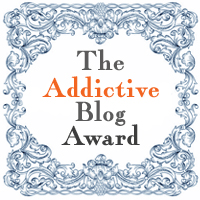I am fascinated with the English language! It’s a passion I learned, late in life, not everyone shares. People enjoy different things for sure! Me? I thrive on researching grammar, spelling and language issues in general.
There is one language related topic in particular that truly blows my hair back: the variances between the use of American English, British English and South African English.
For the record, I do not confess to be an expert on the topic! I am merely an English language buff who has spent a substantial amount of personal time clarifying, in my own mind at least, the correct use of English in writing.
My vocation requires that I edit and write, and being a proud South African, I am continuously irritated at the inconsistencies in magazine and newspaper editorial, amongst others, in relation to the use of American and British English standards. Often – and to my utter dismay – any particular editorial can contain both language styles: the American English standard and the British or UK English standard – all in one writing sample!
 What really gets my goat is the spelling of words with “s” or “z” (e.g. organisation or organization) and conflicting sentence punctuation, especially when using quotation marks e.g.:
What really gets my goat is the spelling of words with “s” or “z” (e.g. organisation or organization) and conflicting sentence punctuation, especially when using quotation marks e.g.:
- “It’s a beautiful and sunny day”, Lisa said. She emphasised, “I wonder when it will rain?”.
- ‘It’s a beautiful and sunny day,” Lisa said. She emphasized, ‘I wonder when it will rain?’
You see, my peers and I were educated to use the “s” and not the “z” – although both are correct in British English, while American English prefers using the “z” only. Yet the “z” creeps persistently into our writing! So which version is correct?
In my humble opinion, South Africans should stick with the following simple language guidelines:
- Using British/UK English spelling e.g. programme, cheque, kilogramme, metre, dialogue, neighbour, honour, archaeology etc.
- Using the “s” and not the “z” in spelling e.g. organise, analyse, capitalise, emphasise, standardise, urbanise etc.
- Using double quotation marks for direct speech and single quotation marks for a quote within a quote.
- Placing the comma or period outside the quotation marks unless the comma or period forms part of the quoted material, in which case the punctuation mark is placed inside the quotation marks.
- In body text which already contains direct speech using double quotation marks, single quotation marks should be used to highlight or emphasise specific words or to enclose slang and jargon.
- Use of hyphens to separate identical letters as in co-operate and re-introduce.
- Hyphenating compound modifiers, if used in adjectives before the noun e.g. full-time job, well-known expert, large-scale project. However, if used after the noun, a hyphen is not used e.g. the job is full time, the expert is well known, the project was large scale. Also, modifiers ending in “ly” do not require hyphenation (thanks to www.copyblogger.com for this easy to remember tip)
- Hyphenating compound numbers and fractions.
So there you have it! Use it or don’t use it – I’ve put it out there!
Related articles
- Speaking Globish (ofwordsandworlds.wordpress.com)
- Is English an International Language? – Part 2 (techcommgeekmom.com)
- Use of English Language (everblazingwale1site.wordpress.com)
- Death to All Commas! (whatifyoucouldnotfail.typepad.com)
- Learn English: Seven Things You Need to Know About British and American English (tutoringtoexcellence.blogspot.com)
Tagged: American and British English differences, American English, British English, Copywriting, Editorial, English language, English standards, Grammar, Language, Punctuation, South Africa, South African English, United States, Writing





Thanks for the link! Nice to see someone else giving this matter some thought :-) Just a quick note on the ‘ise’/’ize’ debate from a Brit who also spends a lot of his time correcting such things: most versions of British English don’t actually use the ‘z’ variant. As far as I know, it’s only listed in the Oxford dictionary, and while that is arguably the most prestigious reference volume for British English, I’ve yet to meet a Brit in everyday life who writes “specialize” instead of “specialise”. I’m fairly convinced the folks in Oxford just put it in there to stir things up a bit!
Also, just wanted to say I love your blog layout. It’s much clearer and more user-friendly than mine – something I need to work on!
LikeLike
Thanks so much! I think I’ll agree about the Oxford folks stirring the pot!
LikeLike
As a Canadian I have the same issues. Depending on my audience I may adopt British or American. But actually I think prescribing one over the other is wrong thinking to begin with.
And if I had to choose I’d go with American even though most Canadians would choose British because they think it’s more “correct” more “traditional” and most of all “different from American”. Australians have the same issues. The largest English speaking country, India probably does too.
Why do we care? It’s foolish pride. It DOES NOT MATTER. If you recognize British English and American English as valid languages why stop there? Is it because one is a small population where English started, and the other is a large and powerful nation? Or is it because they each have official standards? (Actually I do not know if the Americans really have an “official governmental standard” , probably).
Nothing bothers me more than someone who professes to know correct pronunciation and spelling of English and ridicules others. For example, a Brit might pronounce “schedule” like “shedule” while an American might say “skedule” and be ridiculed by the Brit…
The word came to English from French “cedule” so yes you can see how the Brits ended up with their pronunciation, however, it came to French from Latin schedula and Greek skhizein where it’s pronounced with with a hard “K” sound , so neither is more correct. And then there are the people who insist upon pronouncing certain words (valid English words) which originate from French, as French words with French accents, somehow asserting their superiority of knowledge. Actually, they assert their continued ignorance of the fact that the word has long since been “anglici(s)(z)ed” into the English language, and they are just speaking a foreign language. This is why English is successful in growing, it accepts and adapts words from many other languages quite freely, compared to a “top down” official language like French which fights non-French words at every step.
So I’d say your dialect and spelling of English, is just as valid as anyone else’s, and if you want to go with the largest group of English speakers, learn and adopt what the Indians do.
As for grammar, it is also constantly evolving. It hurts my sensibilities when I hear someone say “lay” when they should be using the instransitive “lie”. I see it written all the time in newspapers in Canada and elsewhere as well. Guess what, my sensibilties are out of date. The language is changing, and the majority of English writers in North America at least do not have the least clue as to which is correct and just use “lay”.
I think prescribing spelling and grammar, while a useful hurdle to weed out the under educated (something I spent a great deal of time trying to be perfect at) is a waste of time, it is constantly evolving. I used to have to adapt my spelling depending on the teacher in high school, some (probably through ignorance) American or British. Write for your audience, and if your audience is the world write for yourself first.
So tell me a logical non-emotional reason to prefer “s” over “z”? Conformity? Respect for the origin of English? Audience? Just the way you were taught? Habit?
Of these reasons, only one can not be used to support “z”: respect for the origin of English, the idea that we should not allow change because it makes the language less pure. This is so French.
LikeLike
Thanks so much for sharing – very valid points all round!
LikeLike
Sorry, after I posted, I thought maybe I am being to abrupt and opinionated and I would probably offend you. I used to be just like you.
LikeLike
No way – I’m not offended at all! We all have our opinions and if we can’t verbalise them here, then where can we? :D
LikeLike
Reblogged this on princewaleblaze's Blog.
LikeLike
Don’t you think you should be “continually irritated”, rather than “continuously irritated”?
Just putting it out there, given the topic!
LikeLike
hehehehe, thx Ally! Although I chose “continuously” on purpose before my irritation with these things is non-stop. Wouldn’t continually refer to the fact that my irritation comes and goes? ;)
LikeLike